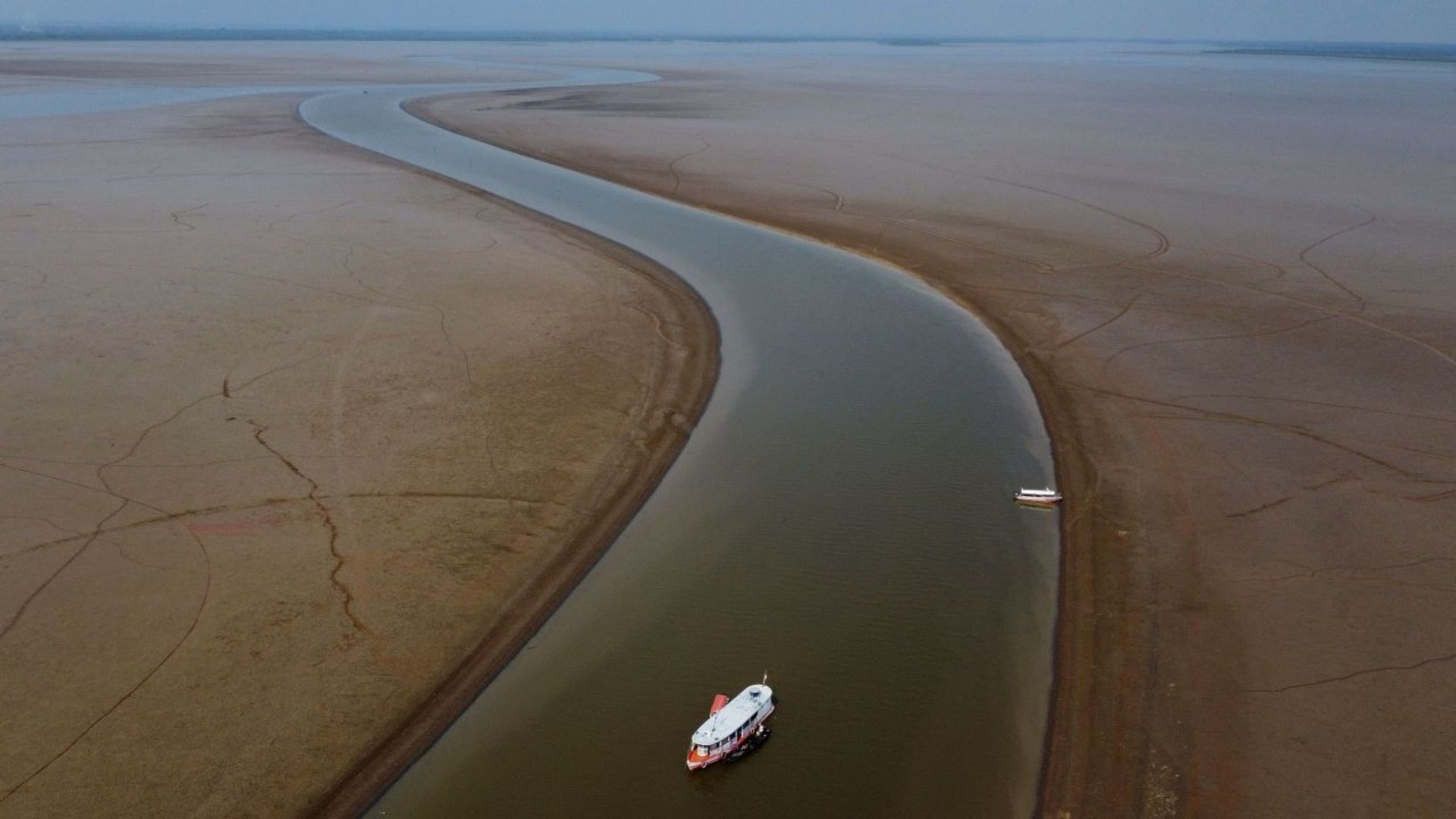Tefe, Brazil - Over a hundred deceased dolphins were discovered in the Brazilian Amazon in Lake Tefé over the past week. The Mamiraua Institute, funded by the Brazilian Ministry of Science, has raised concerns about the scale of these deaths, attributing them to a convergence of factors including an ongoing historic drought and soaring water temperatures, which in some instances have exceeded a scorching 102 degrees Fahrenheit.
Climate scientists have warned the adverse effects of human activities and severe droughts on the fragile Amazon ecosystem.
Preliminary findings suggest a strong connection between the dolphin fatalities and the prolonged drought period coupled with the unprecedented heatwave gripping Lake Tefe.
Some regions of the lake have recorded temperatures surpassing 39 degrees Celsius (102 degrees Fahrenheit), rendering the aquatic environment inhospitable and challenging for marine life.

A severe drought is threatening the Amazon river, image - CNN
The repercussions extend beyond the dolphin population, encompassing a broader array of river fauna struggling to endure the relentless dry season along the Amazon River.
In response to this crisis, a coordinated effort is underway, led by researchers and activists, to relocate surviving dolphins from isolated lagoons and ponds to the main river body, where cooler waters offer a semblance of relief. The complexity of this operation is compounded by the remote and inaccessible nature of the affected area, along with concerns regarding the potential presence of toxins or viruses that could jeopardize the reintroduction of these animals into the wild.
Beyond the ecological toll, the drought's reach extends to the region's economy. In Amazonas State alone, 59 municipalities have reported water levels significantly below average, severely impacting transportation and fishing activities along the Amazon River. With projections hinting at a continuation and exacerbation of the drought in the upcoming weeks, the unfortunate possibility looms of further dolphin casualties.